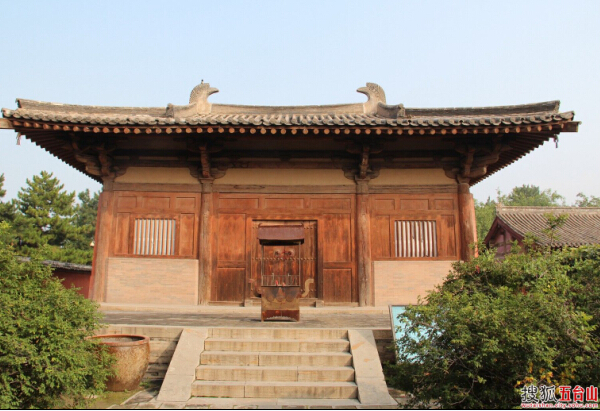Nanchan Temple
(chinadaily.com.cn)
Nanchan Temple that stands today is the earliest wooden building that still exists in China It is located at Lijiazhuang, a village 22 kilometers southeast of Wutai in North China’s Shanxi province.

It is unknown when the temple was initially built, as it was rebuilt in the third year of the Jianzhong period of the Tang Dynasty (AD 782). After several repairs during the Song (AD 420-479), Ming (AD 1368-1644) and Qing (AD 1644-1911) dynasties, it received a grand renovation in 1973 and was restored to its original splendor as a typical Tang-style temple.
The hall is almost a square with a gray roof supported by 12 columns , three of which are relics that could conceivably date back to the period of its initial construction.
At the front of the hall, there is a spacious platform without any columns. The hall contains 17 clay statues; and in its center sits a statue of Sakyamuni, the primary figure in Buddhism.
The statue is considered an outstanding masterpiece of the Tang Dynasty and was listed as a national key cultural relics protection unit in 1961.
This temple is enclosed by a courtyard house with main structures including a Mountain Gate, Dragon King Temple, Bodhisattvas Hall and Great Buddha Hall. The latter is a cultural relic of the Tang Dynasty while the other buildings were constructed in the Ming and Qing dynasties.
